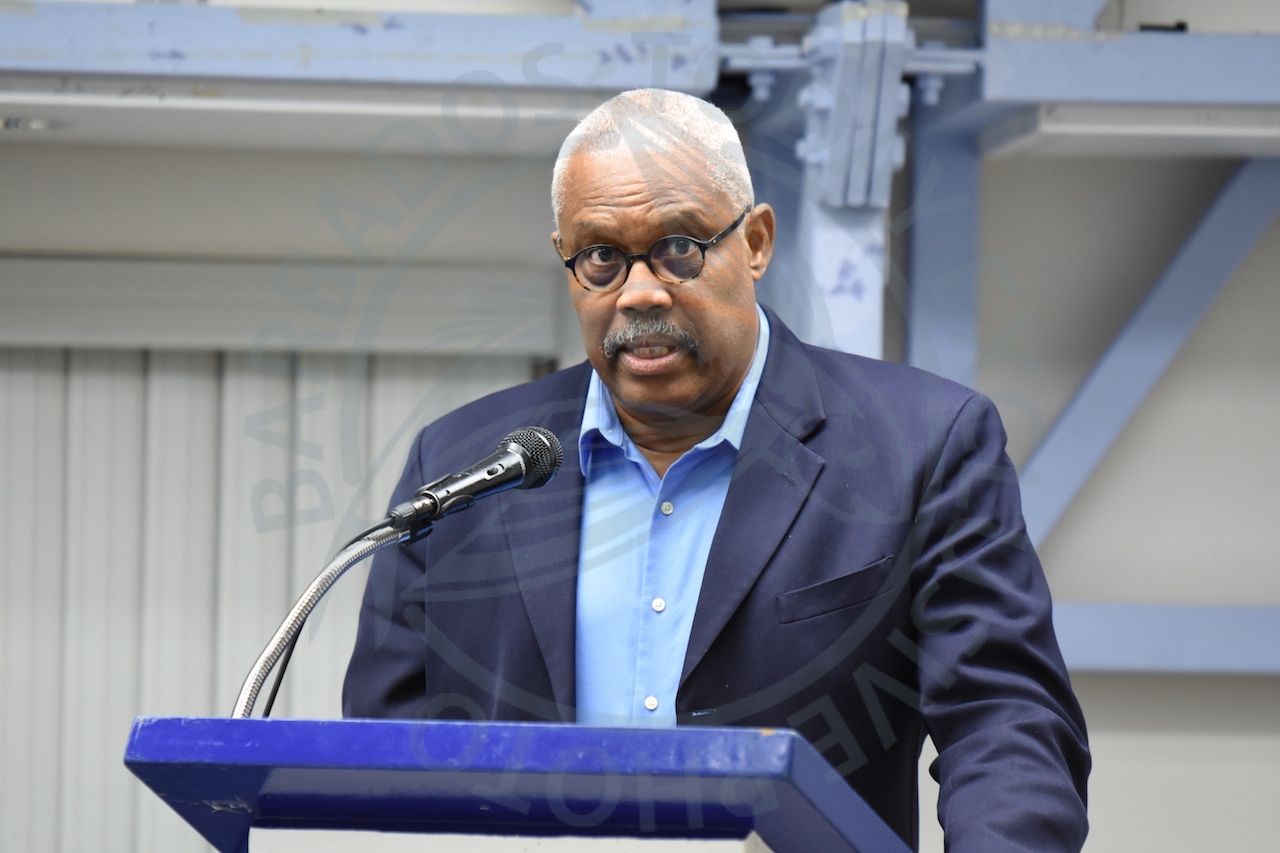Concerned about growing personal and social dysfunction in society, officials have announced that they have embarked on several missions aimed at facilitating more social and emotional learning to combat this issue.
In fact, officially launching the Caribbean Institute for Social and Emotional Learning (CISEL) on Saturday, Founder and Chairman Toney Olton said the mission was to facilitate the emotional intelligence development of some 500,000 Caribbean citizens by 2035 to help combat various social ills.
CISEL is being introduced through EQ Barbados, an emotional intelligence awareness and development oganisation, which was started on April 19, 2019.
Addressing the online launching ceremony on Saturday, Olton said “EQ Barbados was launched … out of a concern for the growing evidence of personal, interpersonal and social dysfunction in our society and to facilitate the noble goal of having 50,000 Barbadians practising emotional intelligence by 2025”.
Officials noted that while the target was to train some 500 individuals locally in the practice of emotional intelligence and then have each of “them taking responsibility for enabling 100 persons in the development of their own emotional intelligence”, that goal was surpassed.
In fact, training has been extended outside of Barbados to include participants from the rest of the region and globally. In the summer of 2019, the CISEL facilitated training for some 260 educators in Barbados and by March 2020 it had facilitated four face-to-face emotional intelligence cohorts.
As at the end of 2021, the CISEL has facilitated training for another five cohorts.
The graduates from those cohorts include educators and leaders in education; members of the judiciary; civil society, youth and service organisations; and the public and private sector.
CISEL Director Olivet Hinds noted that in order to combat any social dysfunction, EQ Barbados had also been busy collaborating with 6Seconds – a global non-profit organisation focused on awareness of emotional intelligence – to host the inaugural Caribbean social and emotional education learning summit, engaging over 130 multilateral educational leaders from around the globe.
“In July we facilitated a four-day workshop in collaboration with the Ministry of Education in Antigua and Barbuda,” added Hinds, as she pointed to work being done.
In a pre-recorded message, Minister of Education, Technological and Vocational Training Kay McConnie also gave the assurance that Government had set wheels in motion to help develop the emotional intelligence of individuals across the island.
She noted that the ongoing COVID-19 pandemic had highlighted the importance of effective emotional and social skills among the population.
Acknowledging that students have had to adapt to new methods of learning while facing feelings of social isolation, problems at home and a lack of device or internet connectivity, McConnie said she was aware these issues have increased feelings of depression, anxiety, anger and low self-esteem and other emotional disturbances.
However, she gave the assurance that the Ministry of Education, in association with stakeholders, had embarked on several initiatives to equip young people with the necessary life skills and development tools to navigate the challenges of life.
“Teaching social and emotional skills assists in building the emotional intelligence skills found to be most needed in higher learning and inherently in the workplace. This will positively influence the well-being of our young people and their future economic possibilities,” said McConnie.
“Barbados’ Ministry of Education … has begun to move in such a direction as it relates to its student support services. Within the last year there has been an over 100 per cent staff increase in the complement of persons positioned to assist students and staff who are having challenges.”
She reminded that there were nine professionals assigned to the student support services unit, and an additional 29 officers, six of whom were funded by the Sandy Lane Charitable Trust.
“The services of the new social workers, school counsellors, school safety officers and special education needs officers have increased the ministry’s capacity to respond effectively and efficiently to the demands,” assured McConnie.
She also noted that the student support services unit was also working closely with the 25 guidance counsellors at the secondary school level and partners in public agencies and private professionals “to ensure that students referred with challenges receive the requisite help”.
Expressing disappointment that more social and emotional programmes were not across the island’s schools to improve school climate and positive behaviour to limit bullying, McConnie pledged to be more proactive in the coming months.
She also called on non-governmental organizations to contribute more to the building out of social and emotional learning within the out-of-school and community settings in order to promote more positive youth engagement.
Saturday’s virtual event was attended by directors and faculty members, as well as several graduates and well-wishers. (MM)




